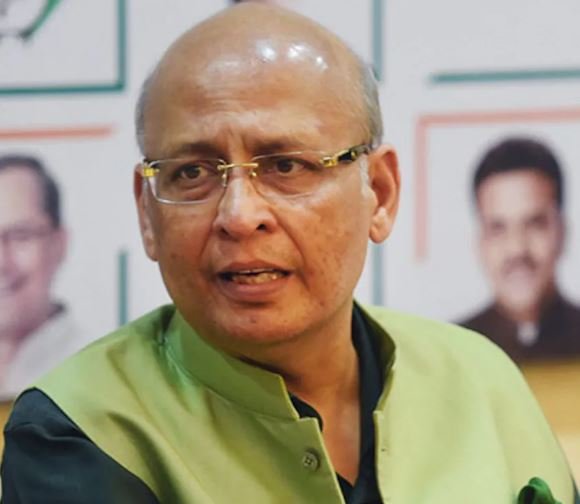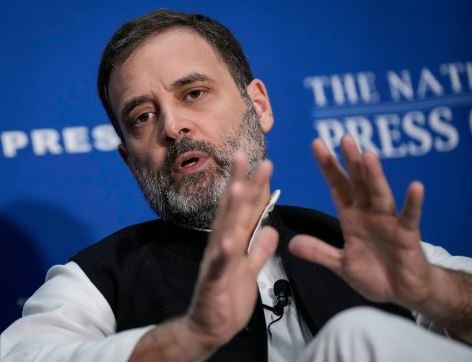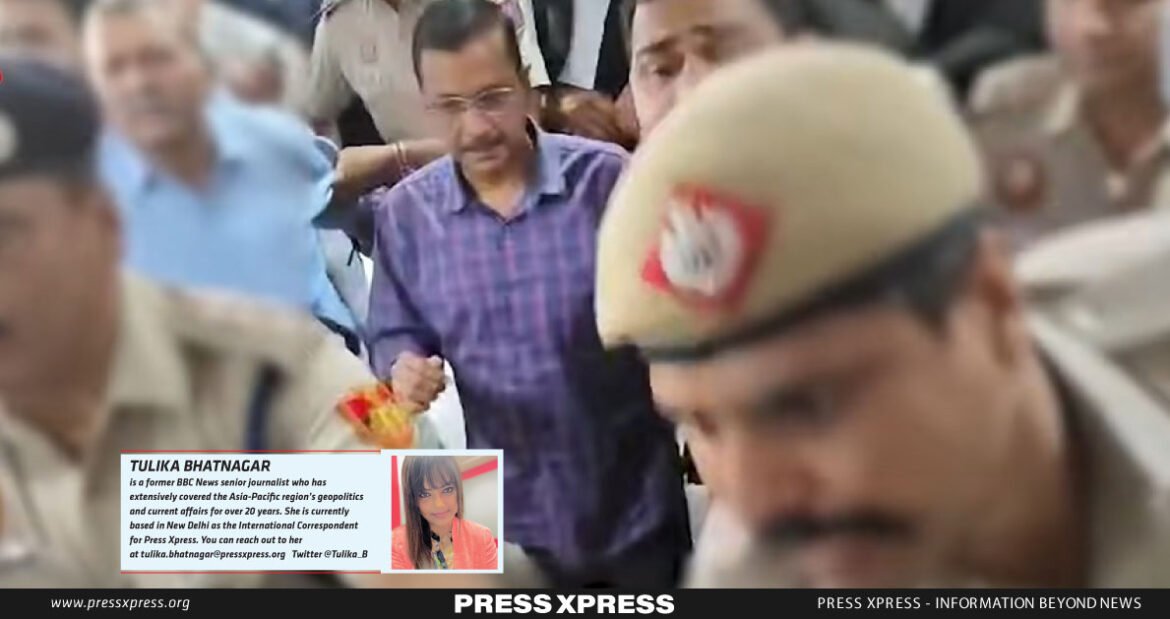Top opposition leader and Delhi chief minister Arvind Kejriwal was taken into custody on 21 March by India’s financial crime investigation agency. The dramatic arrest is over allegations of corruption relating to the city’s liquor sales policy. Kejriwal and his party, the Aam Aadmi Party (AAP or Common Man’s Party), deny any wrongdoing and say the case is politically motivated. But Prime Minister Narendra Modi’s ruling Bhartiya Janata Party (BJP) has denied the allegation and said that it is merely acting against corruption. The incident comes at the crucial time of India’s general election less than a month away.
What happens next?
Incidents are unfolding fast. Within a matter of few hours today, Kejriwal has withdrawn a writ petition in the Supreme Court challenging his arrest by the Enforcement Directorate (ED). A special court comprising three judges, Justices Sanjiv Khanna, MM Sundresh, and Bela Trivedi was to hear the matter today.
But Kejriwal’s lawyers, senior advocate Dr Abhishek Manu Singhvi and advocate Shadan Farasat, returned to mention before Justice Sanjiv Khanna. They will likely seek bail before the trial court and argue against any request by ED for the remand of the Chief Minister. Kejriwal is also scheduled to be produced before the Magistrate court today afternoon.
Senior advocate Singhvi has strongly criticized and challenged the arrest. He reportedly told the Supreme Court that “if this process goes on, before the first vote is cast, a lot of senior leaders will be behind bars.”
Singhvi also called out the arrest on his X handle (@DrAMSinghvi) saying that “democracy minus opposition equals dictatorship and tyranny”, referring to the recent actions taken against several opposition politicians.

It is unclear whether Kejriwal, the first serving chief minister in India to be arrested, will get to run the government from behind bars.
What next for AAP?
As per the law, Kejriwal does not need to resign from his post as Delhi chief minister, according to Advocate Vineet Jindal. “There is no provision in the law by which he can be forced to resign,” he told IANS news agency.
According to the Representation of the People Act, 1951, until proven guilty, an elected representative does not have to quit. However, there is a moral and a practical question about continuing in office. Running the government from inside jail will be completely unreal, said Advocate Rudra Vikram Singh. “Technically, it will be very tough as he has to follow the rules of jail…” Singh told local news publications.
But for AAP, Kejriwal’s arrest has brought the entire top brass of the political party behind bars. Two other senior party leaders, AAP Rajya Sabha MP Sanjay Singh, and former Deputy Chief Minister of Delhi Manish Sisodia, were arrested last year in the same case. Some are speculating that if Kejriwal is in jail for the long term, then he may consent to appoint someone else as the chief minister.
It is possible that Kejriwal’s wife Sunita Kejriwal may fill his shoes. But there is a risk that her position may then be challenged and pave the way for President’s rule in Delhi.
Another senior AAP leader Punjab Chief Minister Bhagwant Mann is now expected to play a big role in keeping the party together and make sure AAP continues its aggressive campaign plans for the upcoming general election.
Kejriwal had already launched the party’s campaign in Delhi, Haryana, Punjab, and Gujarat. The party is contesting 23 seats. But many are asking now whether AAP will have a strong future in the election with the top rung of leaders behind bars.
Election drama
The arrest has brought multi-fold dimensions to the election season already on fire with tight contests and claims between ruling and opposition parties and alliances. AAP, which is a significant member of the Congress-led opposition INDIA bloc, will use the arrest as a big election plank. Kejriwal is a mass leader and has great support in Delhi.
AAP’s national general secretary Sandeep Pathak has tweeted that Kejriwal’s arrest will prove costly for the BJP. The INDIA bloc parties have come out in support of Kejriwal, criticizing the BJP for using ED as a weapon against the opposition.
Rahul Gandhi, member of the Indian National Congress party, wrote on his X handle that “a fearful dictator wants a dead democracy” referring to PM Modi and also in context of the recent freezing of Congress’ bank accounts over an alleged tax dispute – calling it another politically motivated “criminal action”.

West Bengal Chief Minister Mamata Banerjee and leader of the Trinamool Congress party also strongly criticized the arrest. She has offered her “unwavering support and solidarity” to AAP in the fight against the alleged political manipulation.
Another senior TMC leader Derek O’ Brien asked, “How can we expect fair elections if sitting chief ministers and prominent opposition leaders are arrested weeks before polls?”
Opposition Samajwadi Party chief Akhilesh Yadav also said that Kejriwal’s arrest would “give birth to a new people’s revolution”. “BJP knows that it will not come to power again, due to this fear, it wants to remove the opposition leaders from the public by any means at the time of elections, arrest is just an excuse,” he posted on X.
Pinarayi Vijayan, the chief minister of Kerala, said Kejriwal’s arrest is “outright vicious and part of a callous plot to silence all opposition voices just ahead of the general election.”
While Tamil Nadu Chief Minister M K Stalin questioned why “not a single BJP leader faces scrutiny or arrest, laying bare their abuse of power and the decay of democracy.” The BJP has denied any interference in what is the job of the ED. Spokesperson Shehzad Poonwalla lashed out at Kejriwal saying he has been “playing the victim card”.
He noted how Kejriwal “skipped nine summons of the ED” and did not cooperate with the investigation. BJP Delhi President Virendra Sachdeva also said that Kejriwal had been continuously making excuses for dodging summonses in the liquor policy case since 2020-21.
“His political theatrics ended today.”


